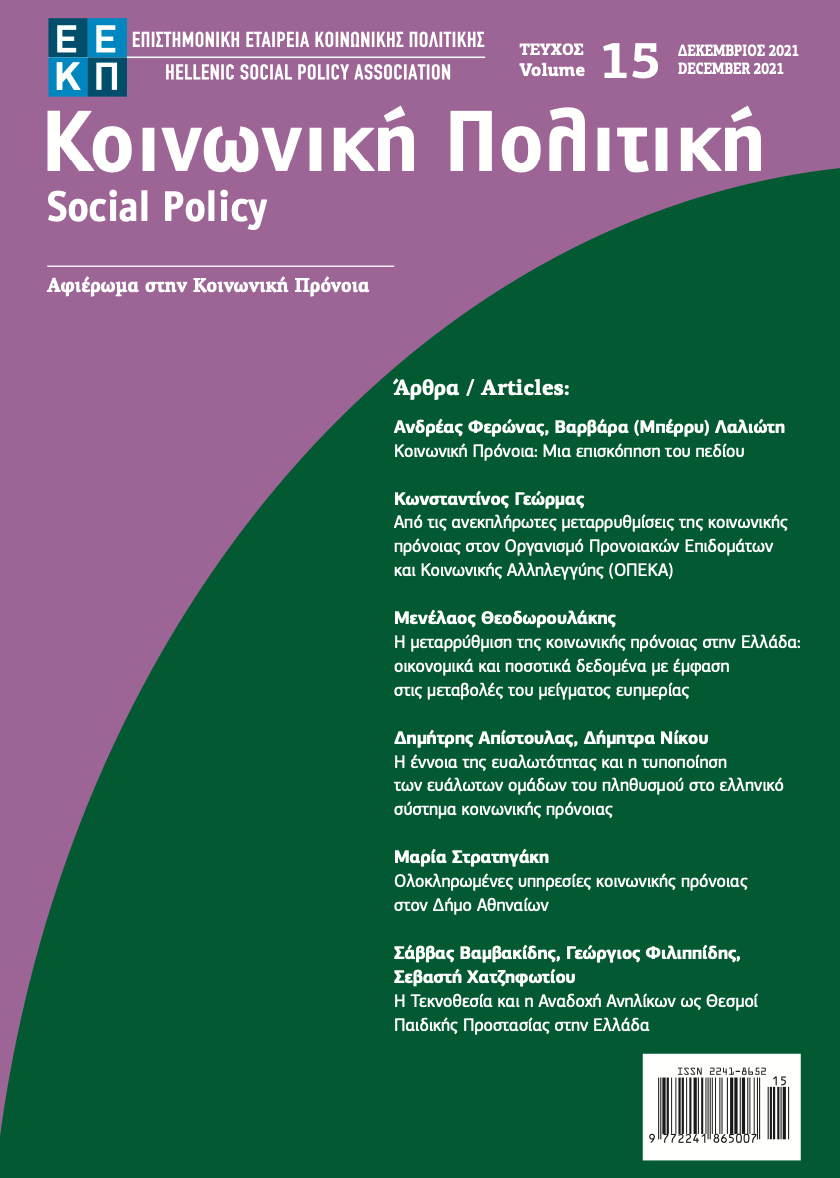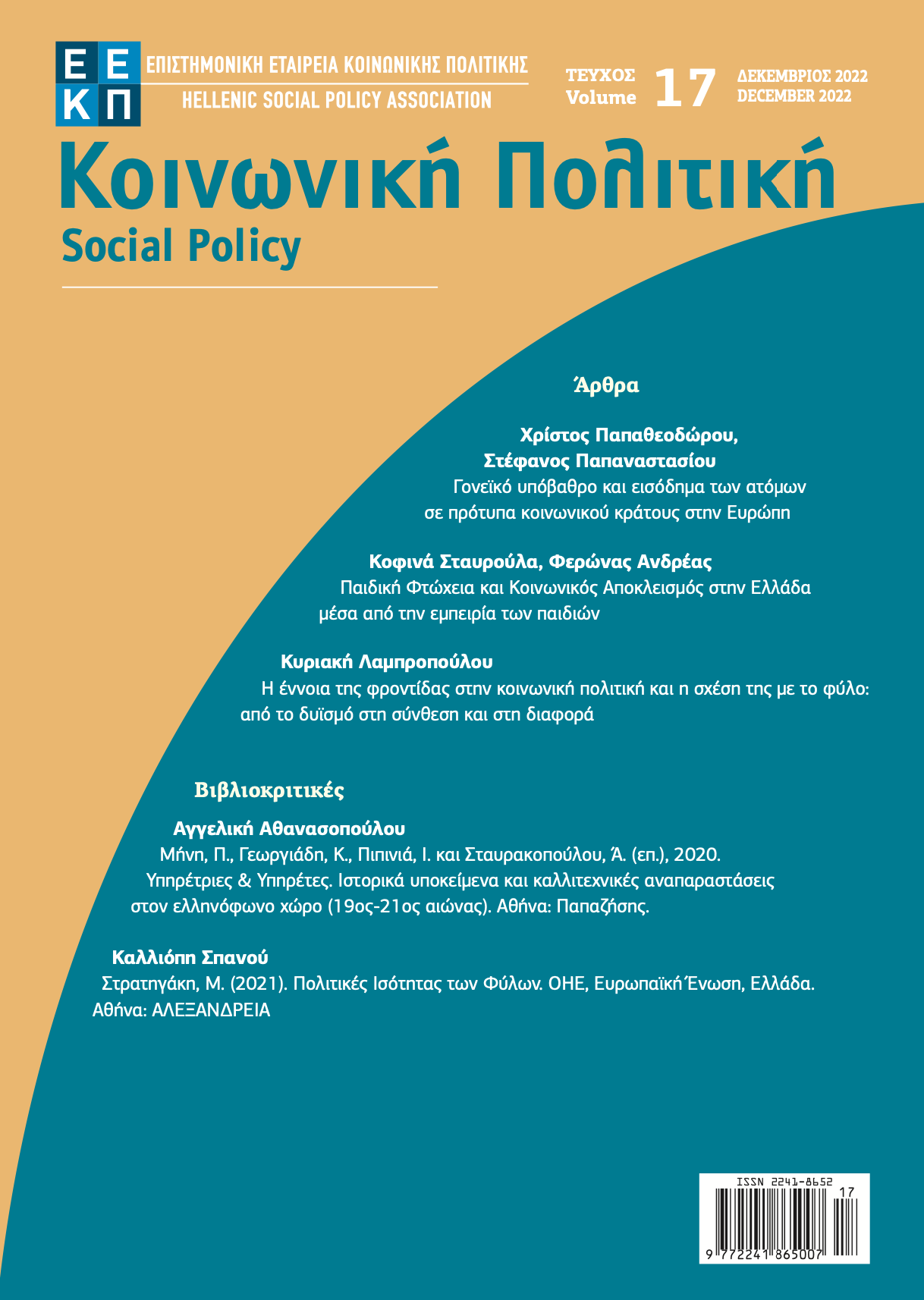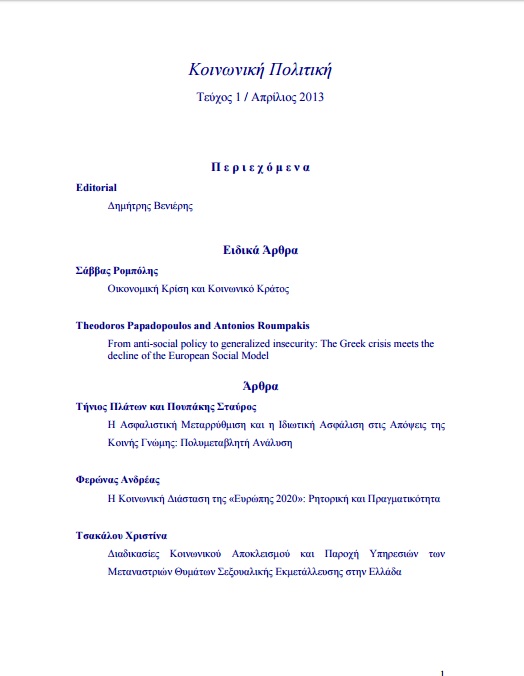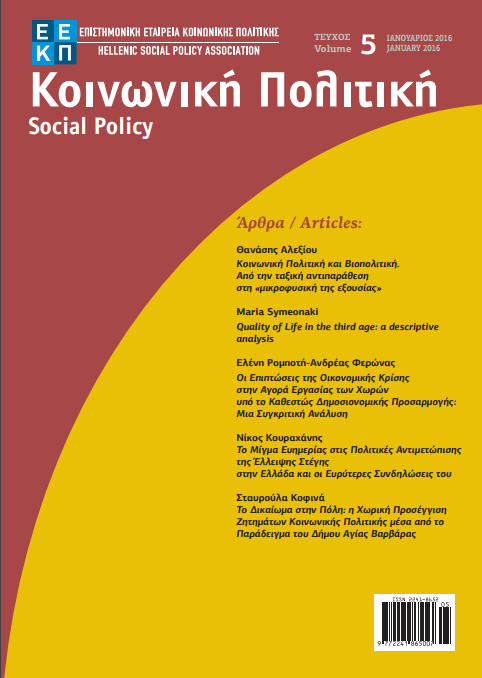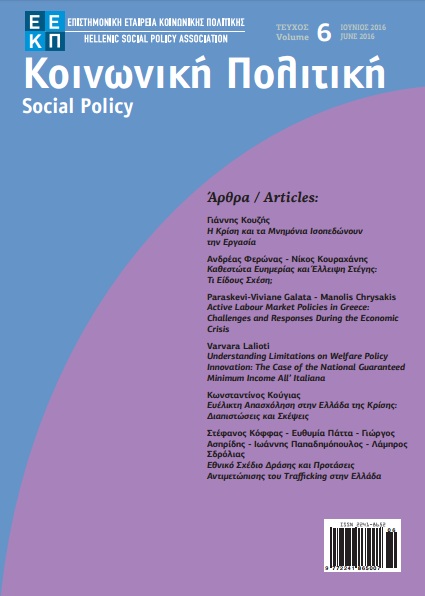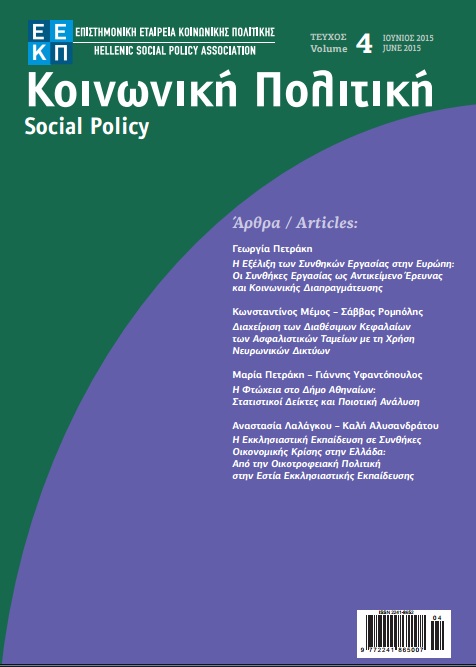Κοινωνική Πρόνοια: Μια επισκόπηση του πεδίου
Аннотация
Τα τελευταία χρόνια, σε ένα τοπίο που διαμορφώθηκε σε μεγάλο βαθμό υπό την πίεση της πρόσφατης οικονομικής κρίσης και των μέτρων λιτότητας, το ενδιαφέρον για τις προνοιακές παροχές αναζωπυρώθηκε. Παράλληλα, το πεδίο της κοινωνικής πρόνοιας κατέστη δημοφιλές θέμα συζήτησης, τόσο σε επίπεδο δημοσίου όσο και ακαδημαϊκού διαλόγου. Στο πλαίσιο αυτό, το παρόν άρθρο παρέχει στον αναγνώστη μια επισκόπηση του εν λόγω πεδίου, με έμφαση σε επιλεγμένες θεματικές: την οριοθέτηση και τα χαρακτηριστικά της κοινωνικής πρόνοιας, την ιστορική της εξέλιξη, καθώς και τους ερμηνευτικούς παράγοντες ανάπτυξής της και τα μοντέλα οργάνωσής της σε ευρωπαϊκό επίπεδο. Στο τέλος του άρθρου, σκιαγραφούνται επίσης οι μελλοντικές προκλήσεις που πιθανώς θα αντιμετωπίσει η κοινωνική πρόνοια, αλλά και οι προοπτικές εξέλιξής της.
Article Details
- Как цитировать
-
Φερώνας Α., & Λαλιώτη Β. (Μπέρρυ). (2021). Κοινωνική Πρόνοια: Μια επισκόπηση του πεδίου. Κοινωνική Πολιτική, 15, 7–28. https://doi.org/10.12681/sp.29089
- Выпуск
- Том 15 (2021)
- Раздел
- Άρθρα

Это произведение доступно по лицензии Creative Commons «Attribution» («Атрибуция») 4.0 Всемирная.
Οι συγγραφείς των άρθρων που δημοσιεύονται στο περιοδικό διατηρούν τα δικαιώματα πνευματικής ιδιοκτησίας επί των άρθρων τους, δίνοντας στο περιοδικό το δικαίωμα της πρώτης δημοσίευσης. Άρθρα που δημοσιεύονται στο περιοδικό διατίθενται με άδεια Creative Commons 4.0 και σύμφωνα με την άδεια μπορούν να χρησιμοποιούνται ελεύθερα, με αναφορά στο/στη συγγραφέα και στην πρώτη δημοσίευση για μη κερδοσκοπικούς σκοπούς και με δικαίωμα τροποποίησης μόνον με παρόμοια διανομή (αν αναμείξετε, τροποποιήσετε, ή δημιουργήσετε πάνω στο υλικό, πρέπει να διανείμετε τις δικές σας συνεισφορές υπό την ίδια άδεια όπως και το πρωτότυπο).

